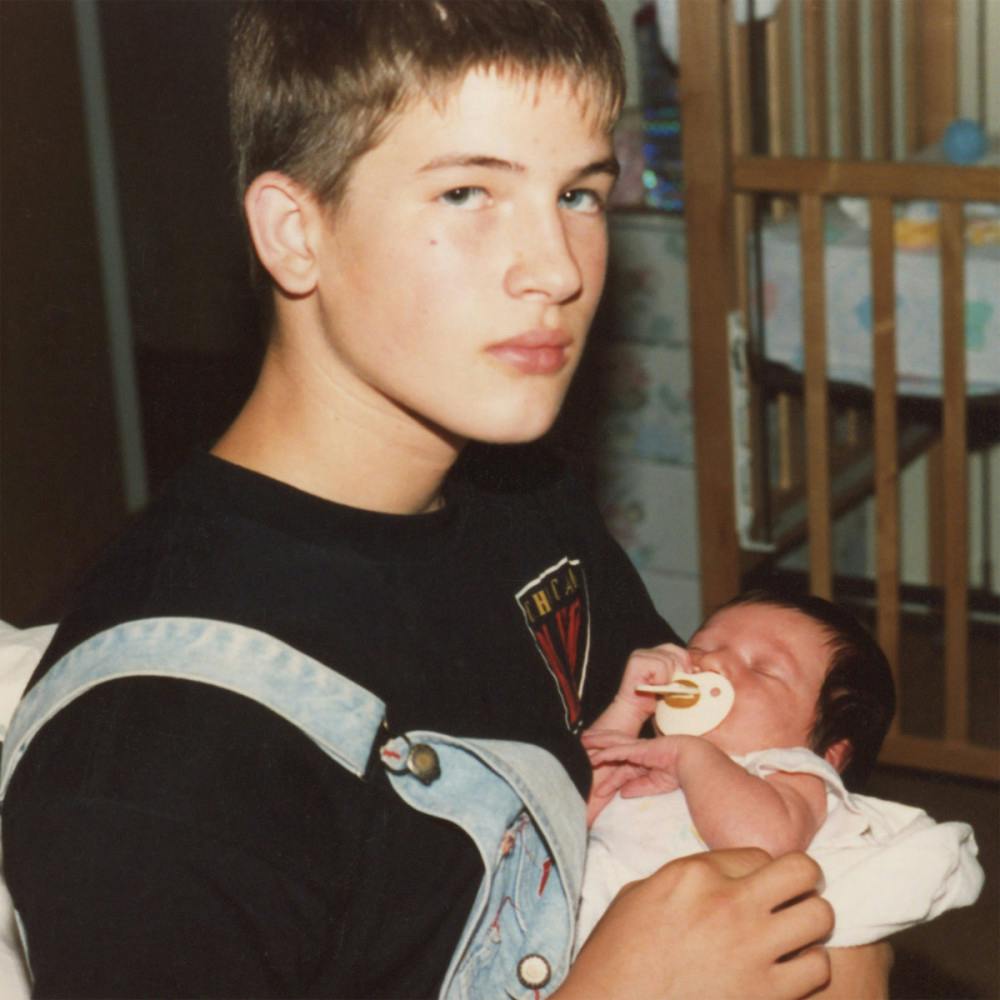by Preston Radtke
Something clever should be written here. A quip, a call to action, or maybe a simple statement? Alas no, for there are no words. The perfect balance of syntax, diction and deprecation couldn’t even come within miles of scratching the surface of how unflinchingly beautiful Capacity by Big Thief is. Though the pundits will try, no one can fairly put in to words just how hauntingly sunny the chorus of “Haley” makes one feel, or how nostalgic one gets at hearing “Mythological Beauty”, or at last, just how pure, raw, and moving “Mary” is. Unfortunately though, this is a review, so with apologies to the Queen Adrienne, words must be spilled.
After their critically-acclaimed 2016 album Masterpiece, many people within the music industry expected a would-be honeymoon period for the Brooklyn-based package. Furthermore, when it did come out, their follow-up would surely be pulled from the same stylistic tree as their initial album. Capacity, however, is plodding where Masterpiece is scampering, brooding while Masterpiece celebrates, and stripped-back where Masterpiece is melodically majestic. Much more folk-inspired, Capacity evokes emotions never explored on Masterpiece. The work is truly a modern marvel.
Big Thief matures yet again
Big Thief is everyone’s favorite 4.0 overachiever. Heart-stoppingly mature after their initial release,
Capacity found the outfit reaching Jeanie Bueller-implied maturity (minus the snobbishness, self-consciousness, and overall unpleasantness).
Masterpiece dealt with topics more tangible and accessible to the everyday world: parties, work, siblings, etc.
Capacity is a manifesto touching on unsexual love, family relationships, and the fragility of love with age and time.
Fortunately, the vocal and instrumental performances are so passionate and raw that these heavy topics don’t feel short-changed or used. “Shark Smile” is a Western-inspired chronicle of a forsaken friendship gone awry by neglect and an implied addiction or affliction. “Mary” is the most mournful and tear-jerking track on the album: an expansive document detailing the protagonist’s simple, unwavering love for someone despite the noise and turmoil of the outside world. Instrumentally, the song features a piano and some effects. Adrianne’s voice on the track takes on a small and beaten-down texture that matches perfectly with the song’s overall aesthetic. The writing and song structure is both beautiful and unconventional. “Mary” appears to slowly be leading to a traditional memorable and concise chorus with plenty-a-high-note. Instead, where the chorus should be Lenker hits the audience with a surprisingly ferocious barrage of sincere lyrics nearly tumbling over themselves. Though measured and befitting of the track, this chorus is a perfect manifestation of the protagonist’s amorous feelings spilling out of her overwhelmed person and into the world.
Big Thief offends no one
Stripped-back though it may be, Big Thief applied certain musical allusions and practices often utilized by other more notable musicians. For instance, “Shark Smile” has an almost country sound to it without poking fun at the genre or negating Big thief’s strengths. “Coma” instrumentally, vocally, and atmospherically sounds very similar to acoustic Feist. The track features a simple, present guitar loop popularized off of many of Feist’s post-“1234” releases. Furthermore, Lenker’s voice has the same texture and inflection as the intrepid Leslie Feist. Feist-ian in nature, “Coma” stills feels authentically Big Thief-ian in its simple progression and song concept. Feist shouldn’t feel ripped-off, as Adrianne Lenker makes sure to separate herself with just the right individual vocal octave climbing and quintessential Big Thief hooks.
The most surprising homage is found in the drum section in the very beginning of “Mythological Beauty.” The drum intro, one of the very few on the record, is measured and melodic in a way reminiscent of “Is This It” by the Strokes off of their own near-perfect release. The drum part feels imperfect enough to either be a loose allusion or an accidental writing effect, a coincidence brought about by two of the most visionary bands of their eras.
Vocals: Again, no words
Masterpiece was much more vocally linear and traditional than
Capacity. Matching the album’s stripped-back mystique, Lenker’s vocals are usually whispered, mumbled, or simply delivered at that oft-overlooked “inside voice” level that your third grade teacher kept harping on about. “Mary”, “Haley”, and “Mythological Beauty” feature impassioned whispers by Lenker, which highlight the mood of the track while still allowing her to show off her understated dynamicism.
Though her voice often remains within a few steps, it isn’t flat or stagnant; she never stays on the same notes for more than two straight lines. This gives the snail-like tracks some semblance of tempo and rhythm. There are, however, some instances where Lenker’s voice shows off some of the spunk from
Masterpiece. “Black Diamonds”, the track that had the unfortunate task of following “Mary”, finds Lenker’s voice in a more traditional, rock-infused space. Of course, Lenker shines in cases of higher notes. It’s important to note just how well these tracks were written vocally for Lenker. There are no instances where her voice seems to wilt or flame out.
Capacity is one of those albums where a voice truly did all of the writing.
Top tracks:
“Shark Smile”
“Watering”
“Coma”
“Great White Shark”
“Mythological Beauty”
”Haley”
“Mary"
Also in the Capacity family:
Waxahatchee:
Ivy Trip
Diet Cig:
Swear I’m Good at This
Girlpool:
Before the World was Big
All images from
Bandcamp




















